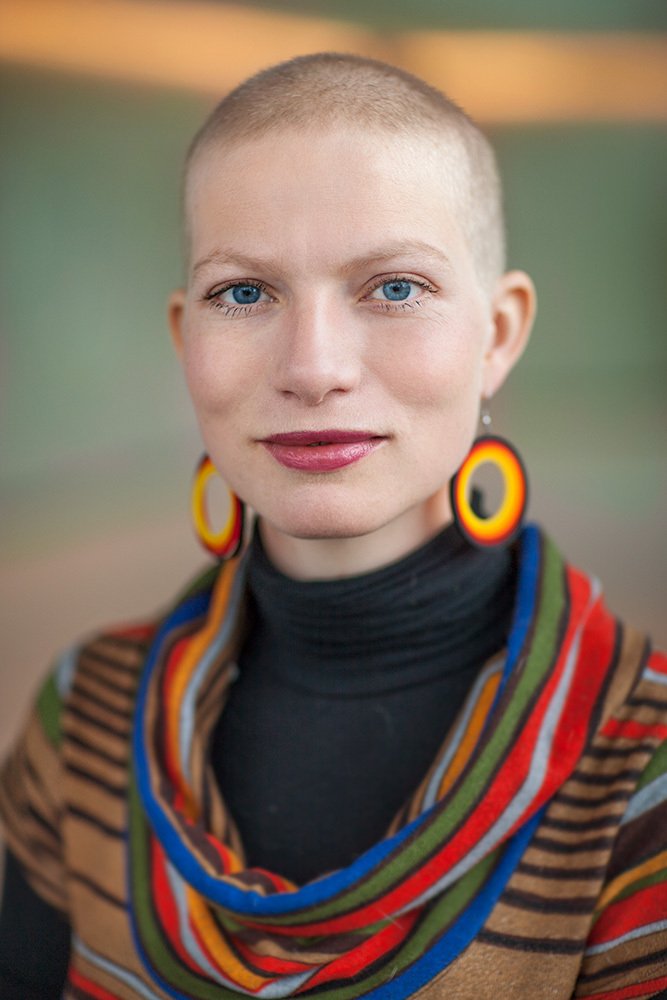PhD alumna Nika aims to unravel the reasons for health inequalities
Name: Nika Seblova
Degree: Ph.D. Aging Research Center/Department of Public Health Sciences
Graduation year: 2019

Tell us your story!
Nika stands out in the current campaign of alumni profiles since she has a PhD from KI, rather than a Master's. After graduation, there is often an option for Master's students to continue their education. Nika's experience highlights the close ties between departments, as well as and other universities in Sweden, that generate solid educational training at many levels.
Raised by a medical doctor, I have always been passionate about health and healthcare provision. However, my academic path was not linear. During my studies, I obtained both qualitative and quantitative analysis training across several disciplines. During my Bachelor studies, I found my niche exploring health care as an Anthropology major. The new field opened my eyes to the intersectionality of social, cultural, and biological environments that influence health. Fascinated, I embarked on a deeper exploration of health inequalities by completing a Master’s degree at Centre for Health Equity Studies (currently Department of Public Health Sciences) at Stockholm University. Through these interdisciplinary experiences, my passion for understanding how various systems or environments (healthcare provision, education, etc.) can be altered to achieve equitable health outcomes grew and I decided to pursue a Doctoral degree at KI.
During my Master’s program, I realized that I love studying health inequalities and want to contribute to knowledge production in this arena. One professor from my Master’s program started a new job at Karolinska Institute/the Centre for Epidemiology and Community Medicine and I became involved in research projects through him. Because of this experience, I decided to pursue my PhD at KI.
I was affiliated to several institutions during my PhD, so I could take advantage of many resources, attend many exciting seminars and journal clubs. Being “in-between” institutions also gave me lot of freedom, which was both beneficial and hard at times. Perhaps that is why my favourite memories come from the Swedish Interdisciplinary Graduate School in Register Based Research (SINGS). The graduate school gave my life structure and cohort of peers from whom I learned, shared my struggles with, and even watched Northern lights with for the first time during a causal inference course in Åre. This unique memory will stay with me forever.
Currently, I work as a postdoctoral research fellow at the Taub Institute for Research on Alzheimer's Disease and the Aging Brain, Columbia University, NYC, USA. My research here focuses on socioeconomic and racial/ethnic disparities in cognitive aging and dementia and builds well on my dissertation and general research interest.
I found my current position on Twitter! Or to be more precise that is where I saw the job announcement. I had about three months to my PhD defense and thus loads of writing to do. Nevertheless, I set aside time to apply for postdocs/jobs, but only if I see THE perfect position. In total, I wrote three job applications and interviewed for two positions. Both of the postdoc positions were a great fit for me topic-wise and with mentors I met at conferences. I ended up accepting one of the positions few weeks before my defense.
Sometimes my days were simple – filled with analyses, manuscript writing and a seminar or two. Other days I was just wowed. For example, I could start my morning with writing and then attended an interdisciplinary seminar at my department. After that, I got to follow my mentor and learn about teaching neuroepidemology to Master’s students. In the afternoon, I was a test subject in an MRI, so my colleagues could set up new brain imaging sequences for our studies. That also means that I now have 3D images and videos of my brain and can even 3D print it! I wrapped up the day by celebrating my mentor and other new members of the Academy of Community & Public Service at my department. As I was falling asleep, memories of the day flooded back, and I was once again in awe of what science can do.
What is your advice to students
First and foremost – take care of yourself. Second, work hard and have fun. Third, trust serendipity – things come together at some points in the most unexpected ways.
